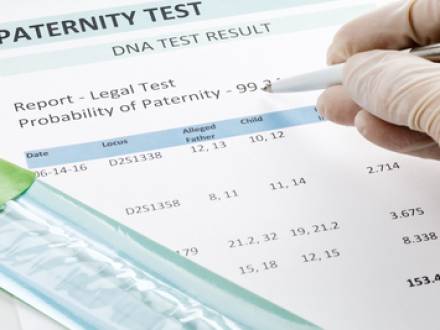Recent Blog Posts
Your Miranda Rights and Your Illinois Criminal Charges
 Many people have heard the phrase "you have the right to remain silent," but fewer understand how Miranda rights actually work during real police questioning. These rights matter because statements made early in a criminal case can strongly affect what happens next.
Many people have heard the phrase "you have the right to remain silent," but fewer understand how Miranda rights actually work during real police questioning. These rights matter because statements made early in a criminal case can strongly affect what happens next.
In 2025, the American Psychological Association highlighted that police-induced confessions can be risky and may contribute to wrongful convictions. Safeguards like Miranda warnings and recorded interviews are so important.
As of 2026, Illinois courts continue to closely examine how police questioning is handled, especially when statements are central to the prosecution’s case. If police have questioned you or charged you with a crime, speaking with Will County, IL criminal defense lawyers early can help protect your rights.
How Does Paternity Affect Custody and Parenting Time in Illinois?
 Paternity plays a major role in child custody and parenting time cases in Illinois. Until legal paternity is established, a father may have no enforceable rights, even if he has been involved in the child’s life from the start. If you have concerns about your parental rights, our Plainfield, IL child custody lawyers can help. Once paternity is established, you can focus on what matters most, your child’s best interests.
Paternity plays a major role in child custody and parenting time cases in Illinois. Until legal paternity is established, a father may have no enforceable rights, even if he has been involved in the child’s life from the start. If you have concerns about your parental rights, our Plainfield, IL child custody lawyers can help. Once paternity is established, you can focus on what matters most, your child’s best interests.
Why Is Paternity Important for Custody and Parenting Time in Illinois?
Paternity does more than confirm biology. It establishes legal parenthood. Without it, an unmarried father has no automatic right to parenting time or even a say in major decisions about his child's life. This is true regardless of his relationship with that child.
Once paternity is established, the legal landscape changes entirely. Both parents can petition the court for parenting time, decision-making authority, and child support. Paternity opens the door to rights, but it also creates enforceable responsibilities like financial support and following court orders.
When Does a Home Become a ‘Drug House’ Under Illinois Law?
 Illinois law takes drug-related property crimes very seriously, and one of the most misunderstood offenses occurs when a home is labeled a "drug house." In some cases, even when the owner of the house never touched narcotics or sold drugs and was not personally arrested, the house could be designated as a drug house. Under Illinois law (740 ILCS 40/), a property becomes a designated drug house when it is used for the manufacturing, storing, selling, or delivering of controlled substances.
Illinois law takes drug-related property crimes very seriously, and one of the most misunderstood offenses occurs when a home is labeled a "drug house." In some cases, even when the owner of the house never touched narcotics or sold drugs and was not personally arrested, the house could be designated as a drug house. Under Illinois law (740 ILCS 40/), a property becomes a designated drug house when it is used for the manufacturing, storing, selling, or delivering of controlled substances.
Prosecutors can pursue drug charges based on patterns of activity, guest behavior, or even a roommate's actions. This can lead to felony charges, property forfeiture, eviction, and other significant collateral consequences. Unfortunately, many people charged with this offense never knew drug activity was occurring inside their home or were unaware that they could be held criminally responsible for someone else’s behavior. If you are being charged with having a "drug house," an experienced Plainfield, IL drug crimes attorney can help you achieve the best possible outcome.
In-Kind Income: How Non-Cash Perks Affect Child Support
 Many Illinois parents earn at least part of their income outside a traditional paycheck in the form of employer-provided housing or a company car, or meals and travel paid for by the employer. Under 750 ILCS 5/505(a)(3), "income" for purposes of calculating child support includes both cash and in-kind benefits that reduce personal living expenses. This means that non-cash compensation can significantly increase a parent’s child support.
Many Illinois parents earn at least part of their income outside a traditional paycheck in the form of employer-provided housing or a company car, or meals and travel paid for by the employer. Under 750 ILCS 5/505(a)(3), "income" for purposes of calculating child support includes both cash and in-kind benefits that reduce personal living expenses. This means that non-cash compensation can significantly increase a parent’s child support.
Whether you expect to receive or pay child support, it is vital to understand how the perks of a job or self-employment wages can affect the amount of child support. A knowledgeable Will County, IL family law attorney can explain how child support can potentially be affected by job perks.
What is the Definition of "Income" Under Illinois Law
Income is defined as "any form of payment to an individual, including wages, salary, commissions, bonuses, and benefits." As you can see, this is a broad interpretation of "income." Appellate cases in the state have reaffirmed that non-cash items count when they directly reduce a parent’s expenses. Some types of "in-kind" compensation, benefits, or perks that would be counted as income for the purpose of child support include:
When Juveniles Are Tried as Adults in Illinois Courts
 The focus of the juvenile justice system in Illinois for juvenile crimes is intended to be on rehabilitation rather than punishment. When the charges against a juvenile are particularly severe, prosecutors may seek to transfer the juvenile's case to adult court through a process known as a transfer hearing. If you are the parent of a juvenile who may be tried in adult court, you are likely terrified of the thought of your child facing adult penalties.
The focus of the juvenile justice system in Illinois for juvenile crimes is intended to be on rehabilitation rather than punishment. When the charges against a juvenile are particularly severe, prosecutors may seek to transfer the juvenile's case to adult court through a process known as a transfer hearing. If you are the parent of a juvenile who may be tried in adult court, you are likely terrified of the thought of your child facing adult penalties.
The difference between juvenile and adult court can mean years or decades in prison rather than rehabilitation in a juvenile facility. An experienced Plainfield, IL juvenile crimes lawyer can help you understand how the transfer hearing works, what triggers a transfer hearing, and what factors the judge will consider when determining whether your child will be tried in adult court.
What Is a Transfer Hearing in Illinois and When Does It Occur?
When a judge determines whether a minor accused of a serious crime should be tried as an adult or remain in the juvenile justice system, this is known as a transfer hearing. The judge will consider a variety of factors, including the severity of the offense. Some offenses, particularly for juveniles aged 16 and 17, may result in an automatic transfer to adult court with no hearing required. A transfer hearing can potentially transfer a juvenile as young as 13 to adult court, although this is rare. The transfer hearing does the following:
Supervised Visitation in Illinois: When Courts Step In and Why
 Illinois courts will virtually always encourage both parents to spend time with their children following a divorce. The courts believe that spending time with both parents is in the best interests of the child in almost every situation. In 2016, under Senate Bill 57, Illinois changed the terminology used in child custody cases. The state now refers to "visitation" as "parenting time," and "custody" is now referred to as the "allocation of parental responsibilities."
Illinois courts will virtually always encourage both parents to spend time with their children following a divorce. The courts believe that spending time with both parents is in the best interests of the child in almost every situation. In 2016, under Senate Bill 57, Illinois changed the terminology used in child custody cases. The state now refers to "visitation" as "parenting time," and "custody" is now referred to as the "allocation of parental responsibilities."
There are a few rare situations when the allocation of parental responsibility or parenting time determinations may come with some conditions. Supervised parenting time can be ordered in some circumstances, but it is never automatic. Illinois courts step in to request supervised parenting time only when there are serious concerns regarding the child’s safety and well-being. It can be beneficial to speak to a knowledgeable Plainfield, IL parenting time lawyer who can help you ensure your child’s best interests are being looked after.
When Words Become Crimes: Verbal Threats and Assault Charges
 When you hear the term "assault," most of us think of it as a physical act. In fact, you can be charged with assault in Illinois (720 ILCS 5/12-1) without ever actually touching the other person. In some cases, words alone – if those words are spoken in a threatening manner – can be enough to result in assault charges.
When you hear the term "assault," most of us think of it as a physical act. In fact, you can be charged with assault in Illinois (720 ILCS 5/12-1) without ever actually touching the other person. In some cases, words alone – if those words are spoken in a threatening manner – can be enough to result in assault charges.
A verbal threat that causes another person to fear imminent harm can meet the legal definition of assault, depending on how and when the threat is delivered. If you are facing assault charges based on something you said, it is extremely important that you speak to a knowledgeable Plainfield, IL criminal defense lawyer.
What Is Assault in Illinois?
Assault occurs when a person engages in conduct that places another person in reasonable fear of being injured. Assault is a threat, whether real or implied, of a battery, which involves actual bodily harm. Battery requires actual physical contact of an insulting or provoking nature, while assault does not require actual physical contact and may only involve verbal threats. Simple assault is a Class C misdemeanor.
When Divorce Gets Messy: Spousal Battles When Splitting Up
 Divorce can be complex, emotional, and contentious. In some cases, divorce can leave long-lasting emotional scars and long-term financial issues. While there are certainly some divorces that are relatively amicable, many more have one or more issues of contention. There are statistics suggesting that the vast majority of divorces in America are uncontested (meaning there is no trial), but this does not mean there were no arguments along the way.
Divorce can be complex, emotional, and contentious. In some cases, divorce can leave long-lasting emotional scars and long-term financial issues. While there are certainly some divorces that are relatively amicable, many more have one or more issues of contention. There are statistics suggesting that the vast majority of divorces in America are uncontested (meaning there is no trial), but this does not mean there were no arguments along the way.
Most couples are realistic enough to know that, eventually, they need to decide their divorce issues on their own, even if it is done grudgingly. Once a divorce goes to trial, a judge usually ends up making all the decisions, with neither spouse being happy about the outcome.
Contested divorces cost more and take more time, which makes resolutions between spouses far more appealing. If you believe there will be areas of contention between you and your spouse, it is a good idea to consult a Plainfield, IL divorce lawyer who can help negotiate solutions that are fair to both sides.
Vote on Chicago Snap Curfew Ordinance Deferred
 Last week, the Chicago City Council delayed a vote on the implementation of a "snap curfew" for young people until June 18. The city has recently seen an increase in what is known as "teen takeovers," and the snap curfews are in response to these incidents. With summer almost here and schools letting out, law enforcement is expecting more teen takeovers, which occur when teens use social media to create large gatherings, usually in downtown areas.
Last week, the Chicago City Council delayed a vote on the implementation of a "snap curfew" for young people until June 18. The city has recently seen an increase in what is known as "teen takeovers," and the snap curfews are in response to these incidents. With summer almost here and schools letting out, law enforcement is expecting more teen takeovers, which occur when teens use social media to create large gatherings, usually in downtown areas.
While a gathering is not, in and of itself, illegal, unfortunately, criminal offenses tend to occur when large numbers of teenagers gather. Fireworks are often shot off during a teen takeover, along with reckless driving, criminal damage to property, and mob actions. Traffic may be blocked during teen takeovers, and recently, during one of these teen takeovers, a police officer was assaulted.
Snap curfews allow the City Council, the Chicago Police Superintendent, and the Deputy Mayor to call for a curfew of groups of 20 or more, with a 30-minute warning. While opponents of snap curfews believe the measure is unconstitutional, the bill is expected to pass in June. If your child has been cited for curfew violations or for more serious juvenile criminal offenses, it can be beneficial to speak to a knowledgeable Plainfield, IL juvenile law attorney.
Finding Out Your Spouse Hid Assets After the Divorce Is Final
 A poll among U.S. adults found that two out of five spouses admit to having committed some act of financial deception during the marriage. Unfortunately, while financial infidelity can play a significant role in the end of a marriage, it can also spill over into divorce.
A poll among U.S. adults found that two out of five spouses admit to having committed some act of financial deception during the marriage. Unfortunately, while financial infidelity can play a significant role in the end of a marriage, it can also spill over into divorce.
Financial infidelity can place a tremendous strain on a couple’s relationship, leading to arguments, a breakdown of trust, and even divorce. The most common forms of financial infidelity during a marriage are hiding purchases, hiding a bank account, and hiding cash from a spouse. Lying about income or debt is also high on the list.
Men tend to be more likely than women (47 percent vs. 39 percent) to report committing financial deception during marriage; that figure tends to increase during divorce, with significantly more men hiding assets from their wives than vice versa. (Almost 63 percent of women felt "strongly" that their husbands hid assets from them during the divorce).





